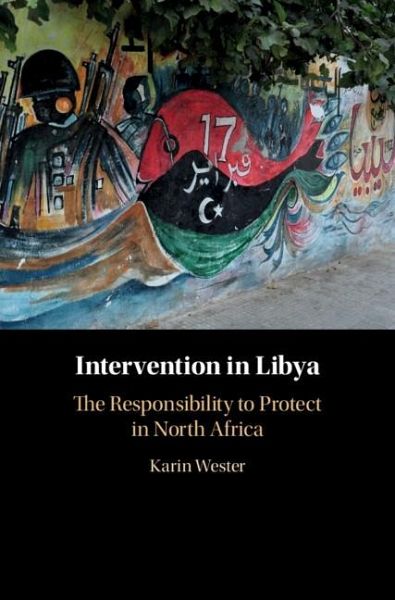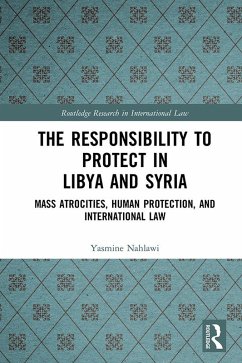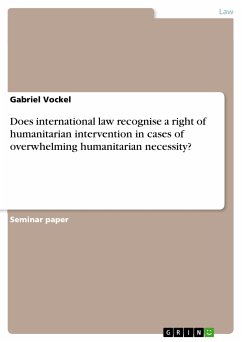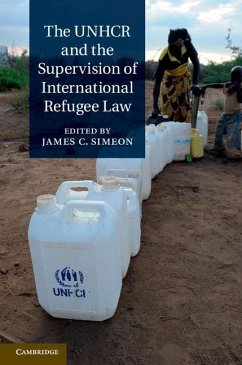
Intervention in Libya (eBook, ePUB)
The Responsibility to Protect in North Africa
Versandkostenfrei!
Sofort per Download lieferbar
54,95 €
inkl. MwSt.
Weitere Ausgaben:

PAYBACK Punkte
27 °P sammeln!
The 2011 crisis in Libya represents the first case in which the international community invoked 'the Responsibility to Protect' principle, adopted in 2005 by UN member states, to justify coercive measures including sanctions and the use of military force. In this study, Karin Wester meticulously reconstructs and analyzes the evolution of the Libyan crisis, the international community's response, and the manner in which the 'Responsibility to Protect' was applied. Drawing on a wide variety of primary sources including in-depth interviews with politicians and diplomats, this comprehensive accoun...
The 2011 crisis in Libya represents the first case in which the international community invoked 'the Responsibility to Protect' principle, adopted in 2005 by UN member states, to justify coercive measures including sanctions and the use of military force. In this study, Karin Wester meticulously reconstructs and analyzes the evolution of the Libyan crisis, the international community's response, and the manner in which the 'Responsibility to Protect' was applied. Drawing on a wide variety of primary sources including in-depth interviews with politicians and diplomats, this comprehensive account of the 2011 intervention in Libya redresses popular narratives asserting that the intervention was driven primarily by western (neo-colonial) interests or by a desire for regime change. Instead, Wester reveals how the 'Responsibility to Protect' principle was realized to a considerable extent, but also how it provided a highly fragile basis for military enforcement action. Incorporating perspectives from international law, political science and history, this is a compelling and thought-provoking examination of the real-world application of a principle that is deeply rooted in history but presents daunting challenges in implementation.
Dieser Download kann aus rechtlichen Gründen nur mit Rechnungsadresse in A, B, BG, CY, CZ, D, DK, EW, E, FIN, F, GR, HR, H, IRL, I, LT, L, LR, M, NL, PL, P, R, S, SLO, SK ausgeliefert werden.













